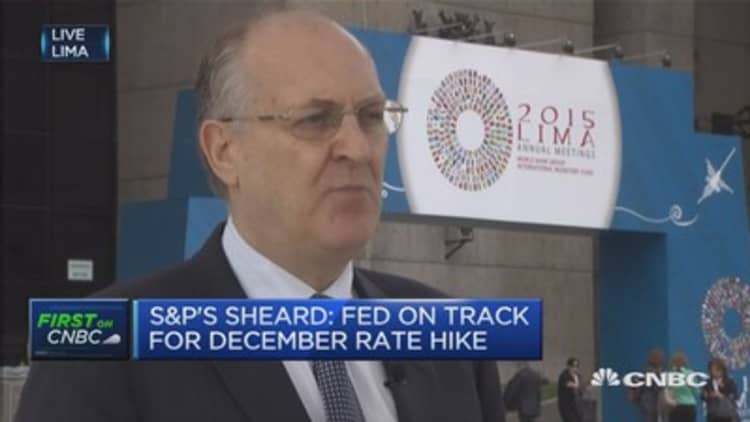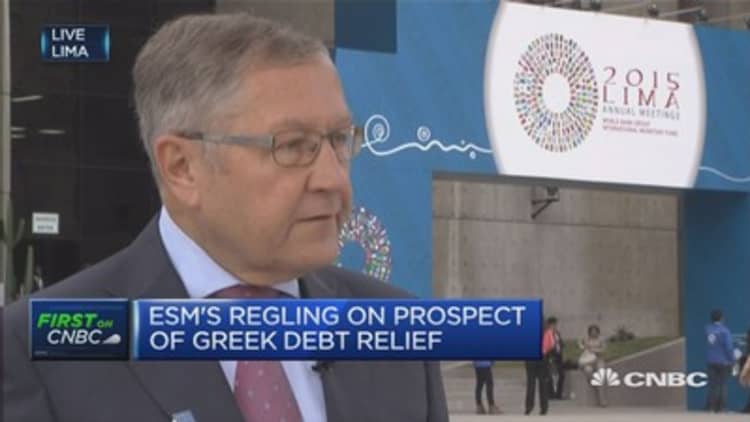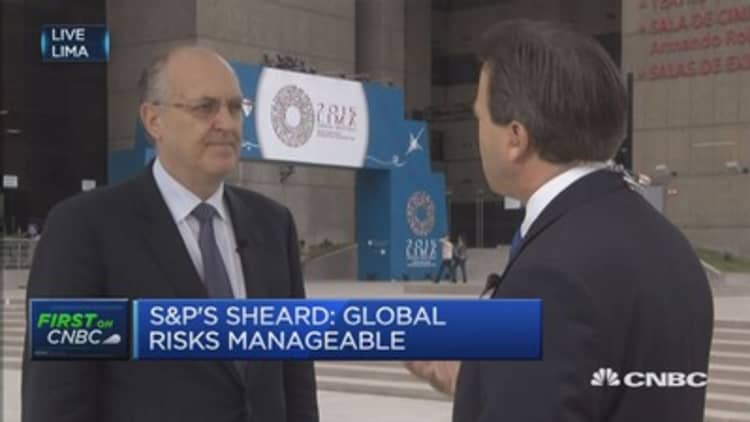



U.K. finance minister George Osborne said while China's economy was undoubtedly slowing, it was not the biggest risk to Britain's economic stability, and joined other economic leaders gathering in Peru for the International Monetary Fund's meeting in Peru in stressing that given its size, China should not be ignored.
Speaking from the IMF meeting in Peru, Osborne said the risks in the global economy were rising, including the slowdown seen in emerging markets such as China and Brazil, and that the U.K. can't be immune from such risks.
Read MoreUK pushes to be 'China's best partner' despite fears
But the Chancellor also hinted at building closer ties with the world's second largest economy, adding there was a need to engage with the country, as a fifth of world's population reside there.
"We must put the Chinese economy in perspective, as it still an enormous contributor to world growth," Osborne said at a media briefing at the IMF meeting, adding that "China is not the biggest risk to the U.K. economy."
The best response to global slowdown is to "keep doing what we have been doing, boosting trade and investment links with the world," he added.
Jack Lew, the U.S. Treasury Secretary, has called on more fiscally disciplined countries, such as Germany, to to do more to help the global recovery pick up.
However, Osborne poured cold water on the suggestion, adding that putting too much pressure on countries with a surplus would not achieve much and that Germany was "part of the solution" for the world economy and not the problem.
The impact of China's softening economy was also acknowledged by Standard & Poor's Chief Global Economist, Paul Sheard.
"Clearly the global economy has slowed and China of course has been a big part of that and there's some nervousness there," he told CNBC in Lima.
"We're looking at a global economy that stabilises, gets through this rough patch and is moving up again next year."
However, Klaus Regling, managing director the euro zone's bailout fund the European Stability Mechanism, added that some countries had more to do when it came to fiscal discipline.
"Some countries have more to do on the fiscal side. I'm not talking about Europe now but also among the emerging markets. Some may be able to do something, others will have to be more careful."
UK's China push
Osborne's comments follow a trip he made to China last month to negotiate new trade links and and construction contracts in the country, in a bid to bolster connections with Beijing.
Osborne also recently announced the teaching of Mandarin in English schools would get a £10 million boost, which would allow 5,000 more pupils in the U.K. to learn it by 2020, suggesting that Mandarin would be more "relevant" than traditional options such as French or German.



